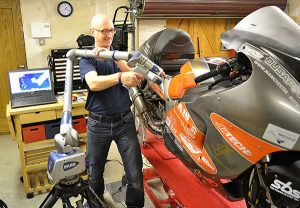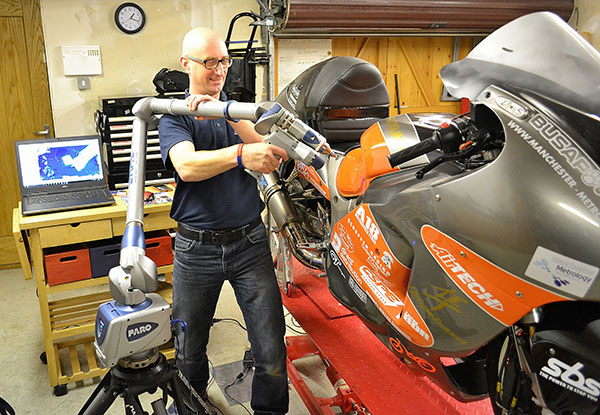Having smashed the previous mark by 20 mph, Scunthorpe-based Becci Ellis set a world record of 264.1 mph on 17 August 2014 and became the world’s fastest woman on a conventional motorcycle over a standing-start mile. Achieving the female land-speed record also makes her the fourth fastest rider in the world, just 30 mph behind the overall world record set by late American rider Bill Warner.

Becci’s feat was performed at Elvington Airfield in North Yorkshire on a 1300 cc Suzuki Hayabusa that, when launched in 1999, won acclaim as the world’s fastest production motorcycle. In preparation for Becci’s record-breaking run, her Hayabusa was highly modified, enabling it to generate 650 bhp.
Not satisfied with being the current holder of the record, Becci is now busy preparing for a new attempt to set the benchmark even higher. In addition to multiple further modifications to the previously record-breaking Hayabusa, particular attention is now being paid to the aerodynamics of the bike.
Rather than use traditional wind tunnel testing methods to analyse and improve the bike’s aerodynamic performance, the team behind Becci’s latest record-breaking attempt are using advanced virtual simulation techniques.
To help gather the raw data needed to enable the best possible virtual simulation outcomes, the team enlisted the help of Manchester Metrology, a specialist in the field of laser scanning and data capture. Mindful of the need to acquire highly accurate data, the staff of Manchester Metrology used a Faro Edge ScanArm HD to undertake the critical scanning routines of the bike.
Philip Knowlson of Manchester Metrology says: “The Faro arm was ideal for this application as it has a scan rate of up to 560,000 points/second.”
For further information www.faro.com















